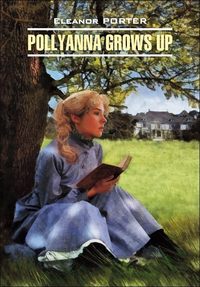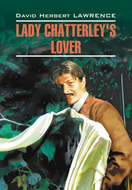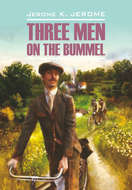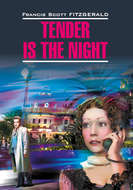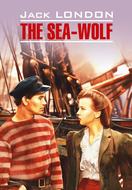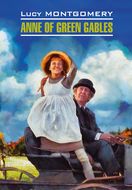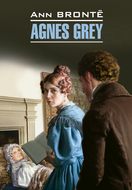Kitabı oku: «Pollyanna Crows up / Поллианна вырастает. Книга для чтения на английском языке», sayfa 4
“Yes, I see,” nodded the girl, falling back into her old listlessness. “But, poor little kid, it’s too bad YOU should find it out – so soon.”
“Find what out?”
“That the lonesomest place in all the world is in a crowd in a big city.”
Pollyanna frowned and pondered.
“Is it? I don’t see how it can be. I don’t see how you can be lonesome when you’ve got folks all around you. Still —” she hesitated, and the frown deepened. “I WAS lonesome this afternoon, and there WERE folks all around me; only they didn’t seem to – to think – or notice.”
The pretty girl smiled bitterly.
“That’s just it.29 They don’t ever think – or notice, crowds don’t.”
“But some folks do. We can be glad some do,” urged Pollyanna. “Now when I —”
“Oh, yes, some do,” interrupted the other. As she spoke she shivered and looked fearfully down the path beyond Pollyanna. “Some notice – too much.”
Pollyanna shrank back in dismay. Repeated rebuffs that afternoon had given her a new sensitiveness.
“Do you mean – me?” she stammered. “That you wished I hadn’t – noticed – you?”
“No, no, kiddie! I meant – some one quite different from you. Some one that hadn’t ought to notice. I was glad to have you speak, only – I thought at first it was some one from home.”
“Oh, then you don’t live here, either, any more than I do – I mean, for keeps30.”
“Oh, yes, I live here now,” sighed the girl; “that is, if you can call it living – what I do.”
“What do you do?” asked Pollyanna interestedly.
“Do? I’ll tell you what I do,” cried the other, with sudden bitterness. “From morning till night I sell fluffy laces and perky bows to girls that laugh and talk and KNOW each other. Then I go home to a little back room up three flights just big enough to hold a lumpy cot-bed, a washstand with a nicked pitcher, one rickety chair, and me. It’s like a furnace in the summer and an ice box in the winter; but it’s all the place I’ve got, and I’m supposed to stay in it – when I ain’t workin’. But I’ve come out to-day. I ain’t goin’ to stay in that room, and I ain’t goin’ to go to any old library to read, neither. It’s our last half-holiday this year – and an extra one, at that; and I’m going to have a good time – for once. I’m just as young, and I like to laugh and joke just as well as them girls I sell bows to all day. Well, to-day I’m going to laugh and joke.”
Pollyanna smiled and nodded her approval.
“I’m glad you feel that way. I do, too. It’s a lot more fun – to be happy, isn’t it? Besides, the Bible tells us to; – rejoice and be glad, I mean. It tells us to eight hundred times. Probably you know about ’em, though – the rejoicing texts.”
The pretty girl shook her head. A queer look came to her face.
“Well, no,” she said dryly. “I can’t say I WAS thinkin’ – of the Bible.”
“Weren’t you? Well, maybe not; but, you see, MY father was a minister, and he – ”
“A MINISTER?”
“Yes. Why, was yours, too?” cried Pollyanna, answering something she saw in the other’s face.
“Y-yes.” A faint color crept up to the girl’s forehead.
“Oh, and has he gone like mine to be with God and the angels?”
The girl turned away her head.
“No. He’s still living – back home,” she answered, half under her breath.
“Oh, how glad you must be,” sighed Pollyanna, enviously. “Sometimes I get to thinking, if only I could just SEE father once – but you do see your father, don’t you?”
“Not often. You see, I’m down – here.”
“But you CAN see him – and I can’t, mine. He’s gone to be with mother and the rest of us up in Heaven, and – Have you got a mother, too – an earth mother?”
“Y-yes.” The girl stirred restlessly, and half-moved as if to go.
“Oh, then you can see both of them,” breathed Pollyanna, unutterable longing in her face. “Oh, how glad you must be! For there just isn’t anybody, is there, that really CARES and notices quite so much as fathers and mothers. You see I know, for I had a father until I was eleven years old; but, for a mother, I had Ladies’ Aiders for ever so long, till Aunt Polly took me. Ladies’ Aiders are lovely, but of course they aren’t like mothers, or even Aunt Pollys; and —”
On and on Pollyanna talked. Pollyanna was in her element now31. Pollyanna loved to talk. That there was anything strange or unwise or even unconventional in this intimate telling of her thoughts and her history to a total stranger on a Boston park bench did not once occur to Pollyanna. To Pollyanna all men, women, and children were friends, either known or unknown; and thus far she had found the unknown quite as delightful as the known, for with them there was always the excitement of mystery and adventure – while they were changing from the unknown to the known.
To this young girl at her side, therefore, Pollyanna talked unreservedly of her father, her Aunt Polly, her Western home, and her journey East to Vermont. She told of new friends and old friends, and of course she told of the game. Pollyanna almost always told everybody of the game, either sooner or later. It was, indeed, so much a part of her very self that she could hardly have helped telling of it.
As for the girl – she said little. She was not now sitting in her old listless attitude, however, and to her whole self had come a marked change. The flushed cheeks, frowning brow, troubled eyes, and nervously working fingers were plainly the signs of some inward struggle. From time to time she glanced apprehensively down the path beyond Pollyanna, and it was after such a glance that she clutched the little girl’s arm.
“See here, kiddie, for just a minute don’t you leave me. Do you hear? Stay right where you are? There’s a man I know comin’; but no matter what he says, don’t you pay no attention, and DON’t YOU GO. I’m goin’ to stay with YOU. See?”
Before Pollyanna could more than gasp her wonderment and surprise, she found herself looking up into the face of a very handsome young gentleman, who had stopped before them.
“Oh, here you are,” he smiled pleasantly, lifting his hat to Pollyanna’s companion. “I’m afraid I’ll have to begin with an apology – I’m a little late.”
“It don’t matter, sir,” said the young girl, speaking hurriedly. “I – I’ve decided not to go.”
The young man gave a light laugh.
“Oh, come, my dear, don’t be hard on a chap because he’s a little late!”
“It isn’t that, really,” defended the girl, a swift red flaming into her cheeks. “I mean – I’m not going.”
“Nonsense!” The man stopped smiling. He spoke sharply. “You said yesterday you’d go.”
“I know; but I’ve changed my mind. I told my little friend here – I’d stay with her.”
“Oh, but if you’d rather go with this nice young gentleman,” began Pollyanna, anxiously; but she fell back silenced at the look the girl gave her.
“I tell you I had NOT rather go. I’m not going.”
“And, pray, why this sudden right-about face32?” demanded the young man with an expression that made him suddenly look, to Pollyanna, not quite so handsome. “Yesterday you said —”
“I know I did,” interrupted the girl, feverishly. “But I knew then that I hadn’t ought to. Let’s call it – that I know it even better now. That’s all.” And she turned away resolutely.
It was not all. The man spoke again, twice. He coaxed, then he sneered with a hateful look in his eyes. At last he said something very low and angry, which Pollyanna did not understand. The next moment he wheeled about and strode away.
The girl watched him tensely till he passed quite out of sight, then, relaxing, she laid a shaking hand on Pollyanna’s arm.
“Thanks, kiddie. I reckon I owe you33 – more than you know. Good-by.”
“But you aren’t going away NOW!” bemoaned Pollyanna.
The girl sighed wearily.
“I got to. He might come back, and next time I might not be able to – ” She clipped the words short and rose to her feet. For a moment she hesitated, then she choked bitterly: “You see, he’s the kind that – notices too much, and that hadn’t ought to notice – ME – at all!” With that she was gone.
“Why, what a funny lady,” murmured Pollyanna, looking wistfully after the vanishing figure. “She was nice, but she was sort of different, too,” she commented, rising to her feet and moving idly down the path.
Chapter VI
Jerry to the Rescue34
It was not long before Pollyanna reached the edge of the Garden at a corner where two streets crossed. It was a wonderfully interesting corner, with its hurrying cars, automobiles, carriages and pedestrians. A huge red bottle in a drug-store window caught her eye, and from down the street came the sound of a hurdy-gurdy. Hesitating only a moment Pollyanna darted across the corner and skipped lightly down the street toward the entrancing music.
Pollyanna found much to interest her now. In the store windows were marvelous objects, and around the hurdy-gurdy, when she had reached it, she found a dozen dancing children, most fascinating to watch. So altogether delightful, indeed, did this pastime prove to be that Pollyanna followed the hurdy-gurdy for some distance, just to see those children dance. Presently she found herself at a corner so busy that a very big man in a belted blue coat helped the people across the street. For an absorbed minute she watched him in silence; then, a little timidly, she herself started to cross.
It was a wonderful experience. The big, blue-coated man saw her at once and promptly beckoned to her. He even walked to meet her. Then, through a wide lane with puffing motors and impatient horses on either hand, she walked unscathed to the further curb. It gave her a delightful sensation, so delightful that, after a minute, she walked back. Twice again, after short intervals, she trod the fascinating way so magically opened at the lifting of the big man’s hand. But the last time her conductor left her at the curb, he gave a puzzled frown.
“See here, little girl, ain’t you the same one what crossed a minute ago?” he demanded. “And again before that?”
“Yes, sir,” beamed Pollyanna. “I’ve been across four times!”
“Well!” the officer began to bluster; but Pollyanna was still talking.
“And it’s been nicer every time!”
“Oh-h, it has – has it?” mumbled the big man, lamely. Then, with a little more spirit he sputtered: “What do you think I’m here for – just to tote you back and forth?”
“Oh, no, sir,” dimpled Pollyanna. “Of course you aren’t just for me! There are all these others. I know what you are. You’re a policeman. We’ve got one of you out where I live at Mrs. Carew’s, only he’s the kind that just walks on the sidewalk, you know. I used to think you were soldiers, on account of your gold buttons and blue hats; but I know better now. Only I think you ARE a kind of a soldier, ’cause you’re so brave – standing here like this, right in the middle of all these teams and automobiles, helping folks across.”
“Ho-ho! Brrrr!” spluttered the big man, coloring like a schoolboy and throwing back his head with a hearty laugh. “Ho-ho! Just as if – ” He broke off with a quick lifting of his hand. The next moment he was escorting a plainly very much frightened little old lady from curb to curb. If his step were a bit more pompous, and his chest a bit more full, it must have been only an unconscious tribute to the watching eyes of the little girl back at the starting-point. A moment later, with a haughtily permissive wave of his hand toward the chafing drivers and chauffeurs, he strolled back to Pollyanna.
“Oh, that was splendid!” she greeted him, with shining eyes. “I love to see you do it – and it’s just like the Children of Israel crossing the Red Sea, isn’t it? – with you holding back the waves for the people to cross. And how glad you must be all the time, that you can do it! I used to think being a doctor was the very gladdest business there was, but I reckon, after all, being a policeman is gladder yet – to help frightened people like this, you know. And —” But with another “Brrrr!” and an embarrassed laugh, the big blue-coated man was back in the middle of the street, and Pollyanna was all alone on the curbstone.
For only a minute longer did Pollyanna watch her fascinating “Red Sea,” then, with a regretful backward glance, she turned away.
“I reckon maybe I’d better be going home now,” she meditated. “It must be ’most dinner time.” And briskly she started to walk back by the way she had come.
Not until she had hesitated at several corners, and unwittingly made two false turns, did Pollyanna grasp the fact that “going back home” was not to be so easy as she had thought it to be. And not until she came to a building which she knew she had never seen before, did she fully realize that she had lost her way.
She was on a narrow street, dirty, and ill-paved. Dingy tenement blocks and a few unattractive stores were on either side. All about were jabbering men and chattering women – though not one word of what they said could Pollyanna understand. Moreover, she could not help seeing that the people looked at her very curiously, as if they knew she did not belong there35.
Several times, already, she had asked her way, but in vain. No one seemed to know where Mrs. Carew lived; and, the last two times, those addressed had answered with a gesture and a jumble of words which Pollyanna, after some thought, decided must be “Dutch,” the kind the Haggermans – the only foreign family in Beldingsville – used.
On and on, down one street and up another, Pollyanna trudged. She was thoroughly frightened now. She was hungry, too, and very tired. Her feet ached, and her eyes smarted with the tears she was trying so hard to hold back. Worse yet, it was unmistakably beginning to grow dark.
“Well, anyhow,” she choked to herself, “I’m going to be glad I’m lost, ’cause it’ll be so nice when I get found. I CAN be glad for that!”
It was at a noisy corner where two broader streets crossed that Pollyanna finally came to a dismayed stop. This time the tears quite overflowed, so that, lacking a handkerchief, she had to use the backs of both hands to wipe them away.
“Hullo, kid, why the weeps36?” queried a cheery voice. “What’s up?”
With a relieved little cry Pollyanna turned to confront a small boy carrying a bundle of newspapers under his arm.
“Oh, I’m so glad to see you!” she exclaimed. “I’ve so wanted to see some one who didn’t talk Dutch!”
The small boy grinned.
“Dutch nothin’!” he scoffed. “You mean Dago37, I bet ye.”
Pollyanna gave a slight frown.
“Well, anyway, it – it wasn’t English,” she said doubtfully; “and they couldn’t answer my questions. But maybe you can. Do you know where Mrs. Carew lives?”
“Nix! You can search me.”
“Wha-at?” queried Pollyanna, still more doubtfully.
The boy grinned again.
“I say not in mine. I guess I ain’t acquainted with the lady.”
“But isn’t there anybody anywhere that is?” implored Pollyanna. “You see, I just went out for a walk and I got lost. I’ve been ever and ever so far, but I can’t find the house at all; and it’s supper – I mean dinner time and getting dark. I want to get back. I MUST get back.”
“Gee! Well, I should worry!” sympathized the boy.
“Yes, and I’m afraid Mrs. Carew’ll worry, too,” sighed Pollyanna.
“Gorry! if you ain’t the limit38,” chuckled the youth, unexpectedly. “But, say, listen! Don’t ye know the name of the street ye want?”
“No – only that it’s some kind of an avenue,” desponded Pollyanna.
“A avenOO, is it? Sure, now, some class to that! We’re doin’ fine. What’s the number of the house? Can ye tell me that? Just scratch your head!”
“Scratch – my – head?” Pollyanna frowned questioningly, and raised a tentative hand to her hair.
The boy eyed her with disdain.
“Aw, come off yer perch39! Ye ain’t so dippy as all that. I say, don’t ye know the number of the house ye want?”
“N-no, except there’s a seven in it,” returned Pollyanna, with a faintly hopeful air.
“Won’t ye listen ter that?” gibed the scornful youth. “There’s a seven in it – an’ she expects me ter know it when I see it!”
“Oh, I should know the house, if I could only see it,” declared Pollyanna, eagerly; “and I think I’d know the street, too, on account of the lovely long yard running right up and down through the middle of it.”
This time it was the boy who gave a puzzled frown.
“YARD?” he queried, “in the middle of a street?”
“Yes – trees and grass, you know, with a walk in the middle of it, and seats, and —” But the boy interrupted her with a whoop of delight.
“Gee whiz! Commonwealth Avenue, sure as yer livin’! Wouldn’t that get yer goat, now?”
“Oh, do you know – do you, really?” besought Pollyanna. “That sounded like it – only I don’t know what you meant about the goat part. There aren’t any goats there. I don’t think they’d allow —”
“Goats nothin’!” scoffed the boy. “You bet yer sweet life I know where ’tis! Don’t I tote Sir James up there to the Garden ’most ev’ry day? An’ I’ll take YOU, too. Jest ye hang out here till I get on ter my job again, an’ sell out my stock. Then we’ll make tracks for that ’ere Avenue ’fore ye can say Jack Robinson40.”
“You mean you’ll take me – home?” appealed Pollyanna, still plainly not quite understanding.
“Sure! It’s a cinch41 – if you know the house.”
“Oh, yes, I know the house,” replied the literal Pollyanna, anxiously, “but I don’t know whether it’s a – a cinch, or not. If it isn’t, can’t you —”
But the boy only threw her another disdainful glance and darted off into the thick of the crowd. A moment later Pollyanna heard his strident call of “Paper, paper! Herald, Globe, – paper, sir?”
With a sigh of relief Pollyanna stepped back into a doorway and waited. She was tired, but she was happy. In spite of sundry puzzling aspects of the case, she yet trusted the boy, and she had perfect confidence that he could take her home.
“He’s nice, and I like him,” she said to herself, following with her eyes the boy’s alert, darting figure. “But he does talk funny. His words SOUND English, but some of them don’t seem to make any sense with the rest of what he says. But then, I’m glad he found me, anyway,” she finished with a contented little sigh.
It was not long before the boy returned, his hands empty.
“Come on, kid. All aboard,” he called cheerily. “Now we’ll hit the trail for the Avenue. If I was the real thing, now, I’d tote ye home in style in a buzz-wagon; but seein’ as how I hain’t got the dough, we’ll have ter hoof it42.”
It was, for the most part, a silent walk. Pollyanna, for once in her life, was too tired to talk, even of the Ladies’ Aiders; and the boy was intent on picking out the shortest way to his goal. When the Public Garden was reached, Pollyanna did exclaim joyfully:
“Oh, now I’m ’most there! I remember this place. I had a perfectly lovely time here this afternoon. It’s only a little bit of a ways home now.”
“That’s the stuff! Now we’re gettin’ there,” crowed the boy. “What’d I tell ye? We’ll just cut through here to the Avenue, an’ then it’ll be up ter you ter find the house.”
“Oh, I can find the house,” exulted Pollyanna, with all the confidence of one who has reached familiar ground.
It was quite dark when Pollyanna led the way up the broad Carew steps. The boy’s ring at the bell was very quickly answered, and Pollyanna found herself confronted by not only Mary, but by Mrs. Carew, Bridget, and Jennie as well. All four of the women were white-faced and anxious-eyed.
“Child, child, where HAVE you been?” demanded Mrs. Carew, hurrying forward.
“Why, I – I just went to walk,” began Pollyanna, “and I got lost, and this boy —”
“Where did you find her?” cut in Mrs. Carew, turning imperiously to Pollyanna’s escort, who was, at the moment, gazing in frank admiration at the wonders about him in the brilliantly-lighted hall.
“Where did you find her, boy?” she repeated sharply.
For a brief moment the boy met her gaze unflinchingly; then something very like a twinkle came into his eyes, though his voice, when he spoke, was gravity itself.
“Well, I found her ’round Bowdoin Square, but I reckon she’d been doin’ the North End, only she couldn’t catch on ter the lingo of the Dagos, so I don’t think she give ’em the glad hand, ma’am.”
“The North End – that child – alone! Pollyanna!” shuddered Mrs. Carew.
“Oh, I wasn’t alone, Mrs. Carew,” fended Pollyanna. “There were ever and ever so many people there, weren’t there, boy?”
But the boy, with an impish grin, was disappearing through the door.
Pollyanna learned many things during the next half-hour. She learned that nice little girls do not take long walks alone in unfamiliar cities, nor sit on park benches and talk to strangers. She learned, also, that it was only by a “perfectly marvelous miracle” that she had reached home at all that night, and that she had escaped many, many very disagreeable consequences of her foolishness. She learned that Boston was not Beldingsville, and that she must not think it was.
“But, Mrs. Carew,” she finally argued despairingly, “I AM here, and I didn’t get lost for keeps. Seems as if I ought to be glad for that instead of thinking all the time of the sorry things that might have happened.”
“Yes, yes, child, I suppose so, I suppose so,” sighed Mrs. Carew; “but you have given me such a fright, and I want you to be sure, SURE, SURE never to do it again. Now come, dear, you must be hungry.”
It was just as she was dropping off to sleep that night that Pollyanna murmured drowsily to herself:
“The thing I’m the very sorriest for of anything is that I didn’t ask that boy his name nor where he lived. Now I can’t ever say thank you to him!”
That’s just it. – (разг.) То-то и оно.
[Закрыть]
for keeps – (разг.) навсегда; на всю жизнь
[Закрыть]
was in her element now – (разг.) теперь была в своей стихии
[Закрыть]
why this sudden right-about face – (разг.) почему такая крутая перемена
[Закрыть]
I owe you – (разг.) я очень тебе обязана
[Закрыть]
TO THE RESCUE – (разг.) спешит на помощь
[Закрыть]
she did not belong there – (разг.) она здесь чужая
[Закрыть]
why the weeps – (разг.) почему плачем
[Закрыть]
talk Dutch – игра слов: to talk Dutch = 1. Говорить по-голландски 2. нести чушь; to talk Dago = говорить по-итальянски (по-испански)
[Закрыть]
if you ain’t the limit – (воскл.) дальше уже ехать некуда; это переходит все границы
[Закрыть]
come off yer perch – (разг.) спустись на землю
[Закрыть]
’fore ye can say Jack Robinson – (разг.) не успеешь оглянуться
[Закрыть]
It’s a cinch – (разг.) Конечно
[Закрыть]
we’ll have ter hoof it – (разг.) придется идти на своих двоих
[Закрыть]
Ücretsiz ön izlemeyi tamamladınız.
